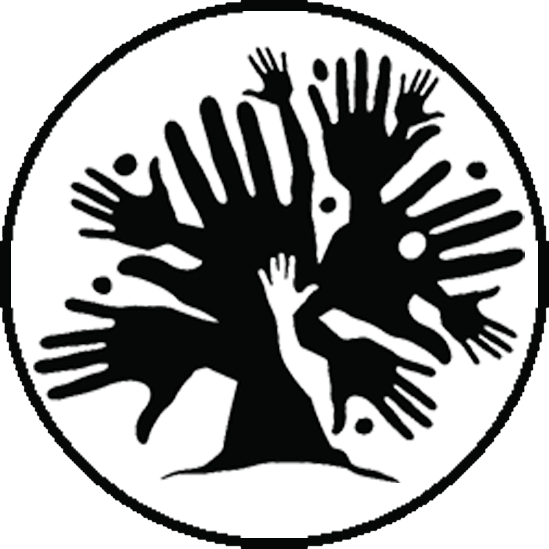The enemies of the freedom to connect have not disappeared. The fire in those politicians’ eyes hasn’t been put out. There are a lot of people, a lot of powerful people, who want to clamp down on the Internet. And to be honest, there aren’t a whole lot who have a vested interest in protecting it from all of that. Even some of the biggest Internet companies, to put it frankly, would benefit from a world in which their little competitors could get censored. We can’t let that happen" - Freedom to Connect Speech (2012) by Aaron Swartz
Net neutrality is one of the founding principles of the internet, preventing internet service providers from messing with the content that is being delivered to billions worldwide. In a world where its ecological, social, and economic systems are collapsing, we depend on the free flow of information to share knowledge and help solve real world problems. Proposals that favor corporate interests such as internet fastlanes and censorship could very well make the internet as we know it a thing of the past.
Aaron Swartz understood this better than most of us and tirelessly worked to ensure that technology was being used to connect us rather than subdue us. We must keep his spirit alive and protect the last remaining source of unbiased and free-flowing information.
The ‘Internet’s Own Boy’, Aaron Swartz
New documentary by Brian Knappenberger about Aaron Swartz opens June 27, 2014
Aaron was merely 8 years old when he discovered the power that the internet has to expand our minds. From an early age he kept a notebook where he wrote down all his favorite Internet sites. The problem was that he had to remember where he had written down each site, so with the help of other people he built a website where internet users could add their favorite sites and share them with others. This project was called Reddit.
Soon Aaron revolutionized how information could be shared online so it could be transferred more freely and quickly through a special format called RSS. His online exploits were soon recognized and he became part of the World Wide Web Consortium (W3C) by age 14.
He did not stop there. Aaron felt driven to unleash the power of the internet to transform the way we learn. His next idea was to digitize as many books as he could to make them freely available to all through the Open Library Project. That is when Aaron ran into issues with copyright laws and commercial restrictions inhibiting him from making all books publicly available. How could he bring knowledge to people with internet access but that could not afford to buy books? After meeting with lawyers and copyright experts Aaron created the legal framework that enabled authors to personalize copyright laws and share their creations free-of-charge without losing authorship recognition. This framework is now known as the Creative Commons licenses.
His later career focused on sociology, civic awareness, and activism. He founded the online group Demand Progress which is best known for their successful campaigns to hold internet censorship laws at bay, such as the Stop Online Piracy Act (SOPA).
In college Swartz discovered JSTOR, a digital library where millions of scientific and academic publications are stored. However, he was horrified to find out that while many of these studies were publically funded, they could not be accessed by the public. JSTOR and many other digital libraries could only be accessed through university subscriptions that cost thousands of dollars a year or by paying high fees for individual articles. Aaron’s ideals were too strong to obey laws he found to be unjust, so he developed a program to systematically download 4.8 million files from JSTOR, which he intended to make publicly available.
Sadly, our current justice system is such that often those who seek freedom for all risk losing their own. In 2011 Federal authorities charged Swartz with two counts of wire fraud and 11 violations of the Computer Fraud and Abuse act, carrying a cumulative maximum penalty of over $1 million in fines and 35 years in prison. Overwhelmed, Swartz fell into a depression and committed suicide on January 11, 2013. Aaron was 26 years old.
We are all Aaron Swartz
With enough of us, around the world, we’ll not just send a strong message opposing the privatization of knowledge — we’ll make it a thing of the past. Will you join us?" -Guerrilla Open Access Manifesto (2008) by Aaron Swartz
Most people take for granted the fact that we can currently access an incredible wealth of unbiased information with just a couple keystrokes. However, this freedom is constantly under threat and requires that we always remain vigilant and push back like Aaron once did.
We have indeed lost a great leader and visionary in the fight for a free and open internet. However, Aaron’s physical disappearance made his struggle ever more present in the public conscience. If you share Aaron’s ideals and convictions that the internet can and should be used for the good of humanity rather than for the economic benefit of those who control it, then there is much you can do to keep his spirit alive.
HOW YOU CAN DEFEND THE INTERNET:
First, become informed. John Oliver recently made a great summary of the facts about Net Neutrality on his show in an epic must-watch rant:
Now, its time to take action! Go to the FCC website and POLITELY let them know you do not want them to break the internet. Don't forget to share this information widely. The future of the internet depends on it.


